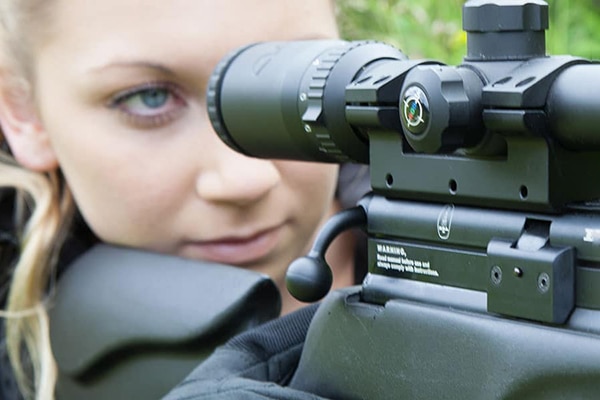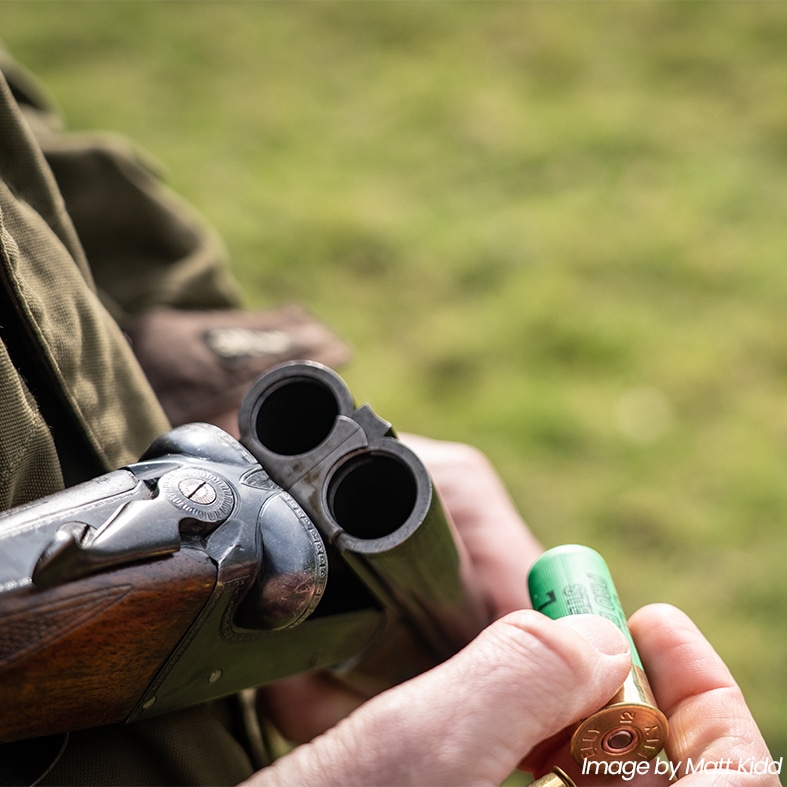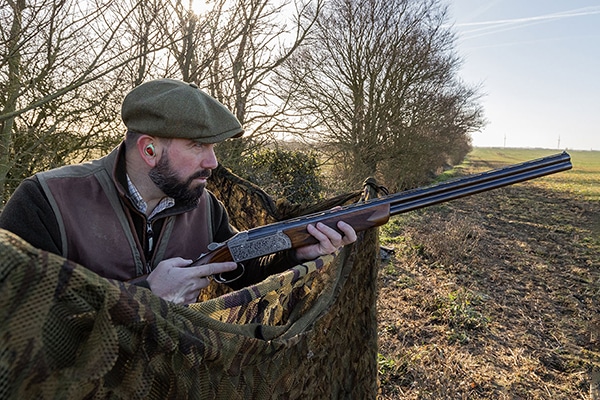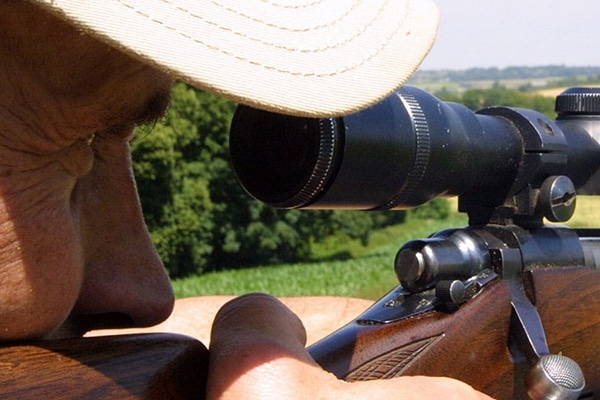
Airgun
Find all our latest updates, advice and guidance relating to airgun ammunition for use in live quarry and target shooting.
Get information on the legal shooting season for mammals and birds in the UK.
Apply for funding for your project or make a donation today
Comprehensive information and advice from our specialist firearms team.
Everything you need to know about shotgun, rifle and airgun ammunition.
Find our up-to-date information, advice and links to government resources.
Everything you need to know on firearms law and licensing.
All the latest news and advice on general licences and how they affect you.


Home » Sustainable ammunition » Moving away from lead
In February 2020, BASC joined other rural organisations – the Countryside Alliance, Country Land and Business Association, Game & Wildlife Conservation Trust, National Gamekeepers’ Organisation, British Game Alliance, Moorland Association, Scottish Land & Estates, and the Scottish Association for Country Sports – in issuing a statement on lead-free ammunition for live quarry shooting.
In consideration of wildlife, the environment and to ensure a market for the healthiest game products, at home and abroad, we wish to see an end to both lead and single-use plastics in ammunition used by those taking all live quarry with shotguns within five years. The shooting community must maintain its place at the forefront of wildlife conservation and protection.
Sustainability in our practices is of the utmost importance.
Many years ago, wetland restrictions demanded a move away from lead shot and we believe it is necessary to begin a further phased transition.
Recently, there have been significant developments in the quality and availability of non-lead shotgun cartridges, and plastic cases can now be recycled.
For the first time, biodegradable shot cups for steel shot, with the necessary ballistics to ensure lethality, are available. These welcome advances are continuing at an ever-quickening pace, in response to demand from a changing market. Such advances mean that, over the coming years, a complete transition is achievable.
We are jointly calling for our members to engage in this transition and work with us, the Gun Trade Association and the cartridge manufacturers to ensure that further viable alternatives are developed for every situation involving live quarry. This is an opportunity to take the initiative and ensure the reputation of the shooting community, as custodians of the countryside, is both maintained and enhanced.
Leading by example, BASC has launched a series of sustainable ammunition days which provide members with the chance to try non-lead loads and understand more about their shotgun’s capability.
The sustainable ammunition days provide ample opportunity to dispel the many uncertainties surrounding steel shot alongside BASC experts while trying out standard steel, biodegradable-wad cartridges from various manufacturers.
We have held many of these events across the country. They are advertised to BASC members via region-specific email newsletters. If you haven’t received an email from us yet, please keep checking here. for updates, or contact your regional team to register your interest.
The pilot course took place over two days in early summer 2020 at Oakedge Shooting Ground, Staffordshire and attracted members from various backgrounds. It allowed us to glean useful feedback. Each of the attendees had an opportunity to try out and compare non-lead cartridges from various manufacturers on a simulated game layout. The results from a survey completed by attendees after the event are shown below.
Research and development of sustainable loads has increased exponentially over the last few years, and we will continue updating the sustainable ammunition days as and when new products come on the market.
93 per cent of participants said the loads were effective on clays.
92 per cent of participants had no concerns about using steel shot once they had tried it.
97 per cent of participants were confident in using steel shot now on both game and clays.
Collectively, we are calling for a phased transition away from the use of lead shot in shotgun shooting for all live quarry. We are also calling for the end of single-use plastics in all shotgun ammunition. We feel that both goals are achievable by 2025, allowing suitable time for the industry to respond with new product development and ensure adequate supply.
Recent technological developments have made non-lead shot more effective, more widely available and more affordable. Equally, biodegradable wads are now a possibility. These advances are continuing apace and it is now time for the wider live quarry shooting community to join the wildfowlers, who have used non-lead alternatives successfully for the last 20 years.
In addition, there are over-burdening legislative changes coming down the line as a result of work being undertaken by the European Chemicals Agency (ECHA). Despite Brexit, we are expecting that these regulations will be implemented in the UK either due to a requirement to sell lead-free game into Europe, or by UK legislation.
Concerns around the use of lead shot limit the current market for game products, and retailers are increasingly asking for game that has been shot with non-lead alternatives.
Additionally, lead has been progressively removed from other substances, such as petrol and paint. There is growing concern about the damage lead shot causes to wildlife away from wetlands. The fact that non-lead alternatives of suitable quality are increasingly available means that we should transition towards them.
Alternatives include steel, bismuth and tungsten-based shots. There are also cheaper alternatives to bismuth, made of alloys, on the market. These are available in a variety of shot sizes and calibres.
No. Each metal behaves differently and people who shoot need to be aware of the differences. Simple patterning tests and practice on clays will help ensure that shooters identify which is best suited to their guns and their intended quarry.
This is a rumour from the very early days of steel shot development. Field trials comparing lead and steel shot have found no differences in a number of measures, including lethality and effectiveness at practical shooting ranges.
Steel shot is classified as either standard or high performance. If your gun has been nitro proofed since 1954 (i.e. it can fire modern lead loads) and bears any of the CIP, London or Birmingham symbols, then it will be safe to fire standard steel providing the ammunition is
compatible with the chamber of the gun.
Standard steel is generally smaller than a British size no. 3 (3.25mm diameter). Please note that the British Proof Authority will not give guidance on pre-1954 marks and recommends re-proof of such arms.
High-performance steel cartridges should be clearly marked as such on the box and should only be fired through guns bearing the fleurde-lys proof mark and usually with the words ‘STEEL SHOT’ stamped on the barrel. High performance steel is usually British shot size no. 3 and larger (3.25mm diameter).
CIP recommends half choke or less for certain shot diameters for the various gauges of shotgun (see table).
| Bore | Maximum recommend choke restriction | Shot diameters |
| 10 & 12 | Half choke or less | For shot larger than 4mm |
| 20 | Half choke or less | For shot larger than 3.5mm |
| 16 | Half choke or less | For shot larger than 3.25mm |
| 28 | Half choke or less | For shot larger than 3mm |
| .410 | Half choke or less | For shot larger than 2.5mm |
If you have any doubts about your gun, seek the advice of a competent gunsmith.
Tests have found that standard-performance 24g steel loads did not cause any damage in thin-walled game guns, even after a thousand shots. However, if you are unable to use steel then your main alternative is bismuth, which is suitable for both muzzle-loading and Damascus-barrelled guns.
Bismuth costs more than both lead and steel but, ultimately, this is all about choices and securing the future of sustainable shooting. If you are worried about steel damaging your barrels, there are now also cheaper alternatives to bismuth on the market that are made of metal alloys.
Recent developments in soft steel shotgun cartridges should provide alternatives to lead that are suitable for all normal game shooting ranges. Such ammunition is safe to use in modern (post 1954, nitro-proofed) guns that are generally used for high bird shooting, if used in accordance with CIP guidance.
All shot can ricochet. This is most likely to occur off rocks or other hard surfaces and, to a lesser extent, water and trees. There is evidence that steel ricochets slightly more than lead, but this is in a more predictable path. The fact remains that an unsafe shot with lead is an unsafe shot with steel.
Caution should be taken when eating game, because any type of shot can damage teeth, including lead and bismuth. There is a chance of damage if you were to accidentally bite steel shot, but dentists in countries that have already phased out lead have not seen an increase in tooth damage due to biting shot since the transition.
A CIP (the European organisation responsible for the safety testing of firearms and ammunition) working group, with UK representation, is studying the possibility of raising velocity and shot weight limits for steel to those set by SAAMI (the US equivalent to CIP), to increase performance. We are collectively lobbying to ensure priority for such changes.
Yes. We anticipate that, as interest and demand for non-lead shot grows, further developments in cartridge manufacture will rapidly meet any remaining needs. We are working closely with manufacturers, and lobbying for technical development grants from the government, to ensure that these advances continue apace.
All the major cartridge manufacturers in the UK now have sustainable ammunition offerings, including 20 bore cartridges and 2.5-inch cartridges for 12 bore.
Advances in steel shot cartridges have resulted in viable lead shot alternatives for larger wildfowl such as geese. However, adult foxes may require greater shot pellet density for effective penetration, energy transfer and humane despatch. There are a number of excellent non-lead alternatives in use for coyote and fox shooting in the USA, said by many to work even better than lead.
During the transition period, we will be working with cartridge manufacturers and importers to ensure these alternatives become available in the UK.
If you have checked with a gunsmith, and you are confident that your gun is suitable, we suggest using steel shot. Ask for shot one or two sizes larger than you currently use in lead (e.g. size 4 or 5 steel if you currently use size 6 in lead) and insist on biodegradable wads.
Yes. Denmark, the Netherlands and the Flemish region of Belgium.
They have not reported any problems with the effectiveness. Indeed, in many cases steel shot has been found to pattern more successfully than lead and to have superior levels of penetration.
In 2014, Norway reintroduced lead shot for live quarry hunting outside wetlands after a lengthy campaign by the Norwegian Association of Hunters and Anglers. Their argument at the time described the lack of risk, away from wetlands, associated with the predominantly low-density type of shooting that takes place in Norway.
The development of non-lead cartridges has been rapid and is ongoing. However, there are still improvements to be made in availability and choice, especially for smaller-gauge guns.
We are therefore phasing the transition over a five-year period to enable manufacturers to bring the products that are currently in development to market.
No. There is now a huge market for recycled plastic and we are encouraging people to support manufacturers’ efforts to produce plastic cartridges from recycled, rather than new, plastic. We are calling for an end to non-biodegradable plastic wads in shotgun cartridges, which are not routinely or effectively collected during live quarry shooting.
Viable alternatives are being researched. Where lead ammunition is used in a contained environment, such as a range, or there is an absence of reasonable alternatives, we feel lead should continue to be used.
We are working to ensure that shooting is not damaged by the transition to non-lead shot.
The voluntary phased transition away from lead shot for live quarry shooting is a key argument against premature restrictions. However, time is already running out.
A series of reviews and consultations are taking place within the UK and overseas investigating the risks to the environment and human health from the use of lead ammunition. BASC will ensure that the evidence is objectively evaluated.
There may be restriction proposals for some uses and types of lead ammunition as soon as 2023. BASC will ensure that they consider the complex mix of socio-economics, technical factors and attitudes.
We will be a voice for both live quarry and target shooting interests. BASC will ensure that lead ammunition used for target shooting is not impacted by restrictions aimed at reducing the risks caused by live quarry shooting; and vice versa.
If we have concerns that legislative proposals are disproportionate and will damage shooting, we will lobby for them to be revised.
We are keeping the government, MPs, and other legislative assemblies informed, and we are countering misinformed lobbying by those wanting a complete ban on lead ammunition. BASC is working with the cartridge manufacturers and proof houses. We are issuing advice on how to transition and constantly updating our training programme to include the necessary elements.
BASC will ensure that further restrictions on lead ammunition do not result in a reduction in people participating in shooting due to a lack of ammunition for their guns and shooting disciplines.

Find all our latest updates, advice and guidance relating to airgun ammunition for use in live quarry and target shooting.

Here you’ll find all our latest updates, advice and guidance relating to shotgun ammunition for use in live quarry and target shooting.

Here you’ll find all our latest updates, advice and guidance relating to large and small calibre rife ammunition for use in live quarry and target shooting.